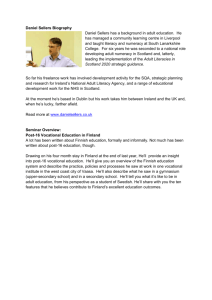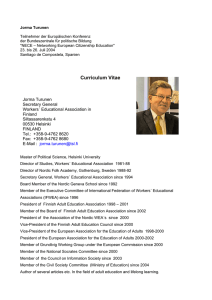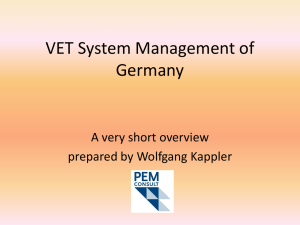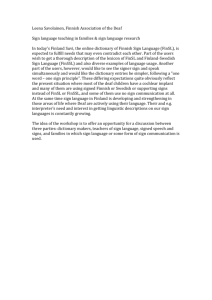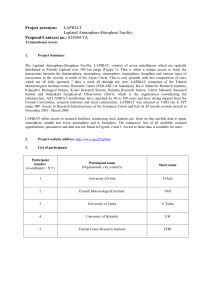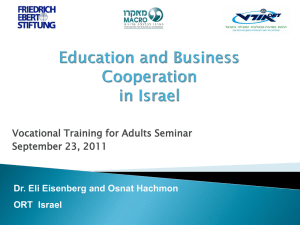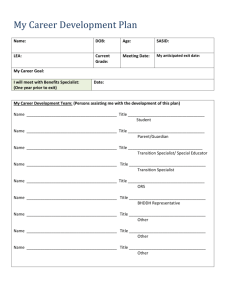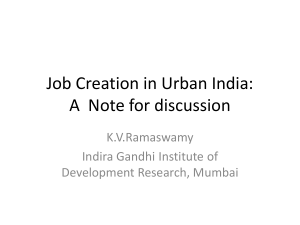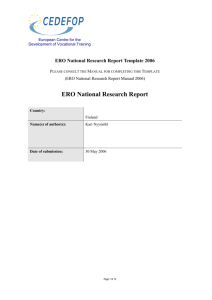International perspectives on policy, pedagogy and practice in
advertisement
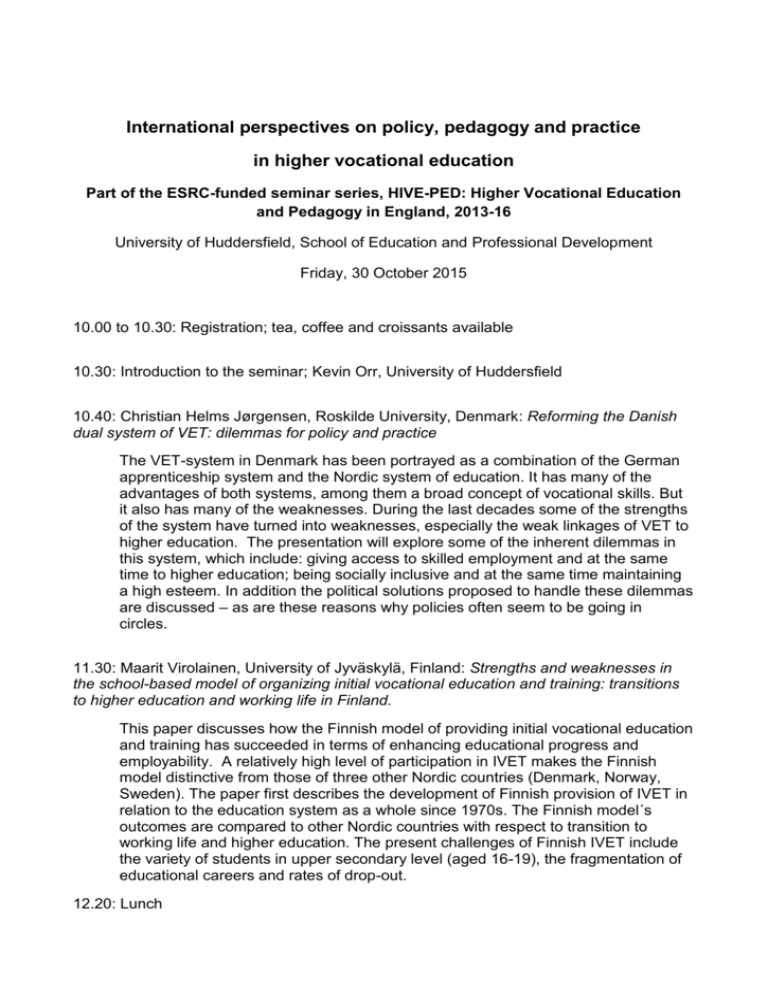
International perspectives on policy, pedagogy and practice in higher vocational education Part of the ESRC-funded seminar series, HIVE-PED: Higher Vocational Education and Pedagogy in England, 2013-16 University of Huddersfield, School of Education and Professional Development Friday, 30 October 2015 10.00 to 10.30: Registration; tea, coffee and croissants available 10.30: Introduction to the seminar; Kevin Orr, University of Huddersfield 10.40: Christian Helms Jørgensen, Roskilde University, Denmark: Reforming the Danish dual system of VET: dilemmas for policy and practice The VET-system in Denmark has been portrayed as a combination of the German apprenticeship system and the Nordic system of education. It has many of the advantages of both systems, among them a broad concept of vocational skills. But it also has many of the weaknesses. During the last decades some of the strengths of the system have turned into weaknesses, especially the weak linkages of VET to higher education. The presentation will explore some of the inherent dilemmas in this system, which include: giving access to skilled employment and at the same time to higher education; being socially inclusive and at the same time maintaining a high esteem. In addition the political solutions proposed to handle these dilemmas are discussed – as are these reasons why policies often seem to be going in circles. 11.30: Maarit Virolainen, University of Jyväskylä, Finland: Strengths and weaknesses in the school-based model of organizing initial vocational education and training: transitions to higher education and working life in Finland. This paper discusses how the Finnish model of providing initial vocational education and training has succeeded in terms of enhancing educational progress and employability. A relatively high level of participation in IVET makes the Finnish model distinctive from those of three other Nordic countries (Denmark, Norway, Sweden). The paper first describes the development of Finnish provision of IVET in relation to the education system as a whole since 1970s. The Finnish model´s outcomes are compared to other Nordic countries with respect to transition to working life and higher education. The present challenges of Finnish IVET include the variety of students in upper secondary level (aged 16-19), the fragmentation of educational careers and rates of drop-out. 12.20: Lunch 13.10: Christopher Winch, Kings College London: Assessing Professional Know-How This paper encompasses the technical-technological interface within professional and vocational higher education. It examines the role and limitations of relying solely on practice-based assessment of progress at this level of study or training. 14.00: James Avis, University of Huddersfield (Discussant); introduction to a discussion of the themes raised in the three papers. 15.00: Finish

